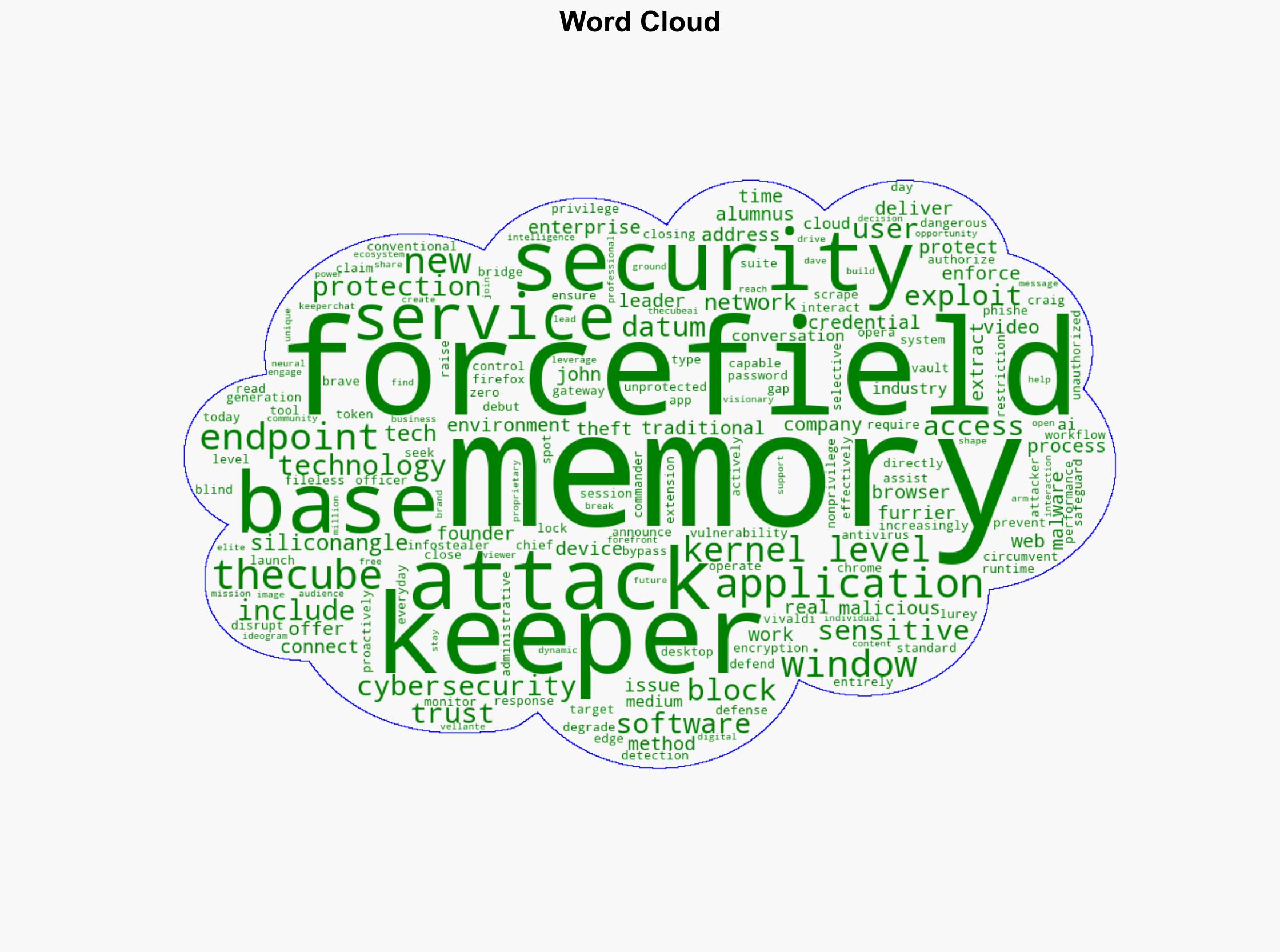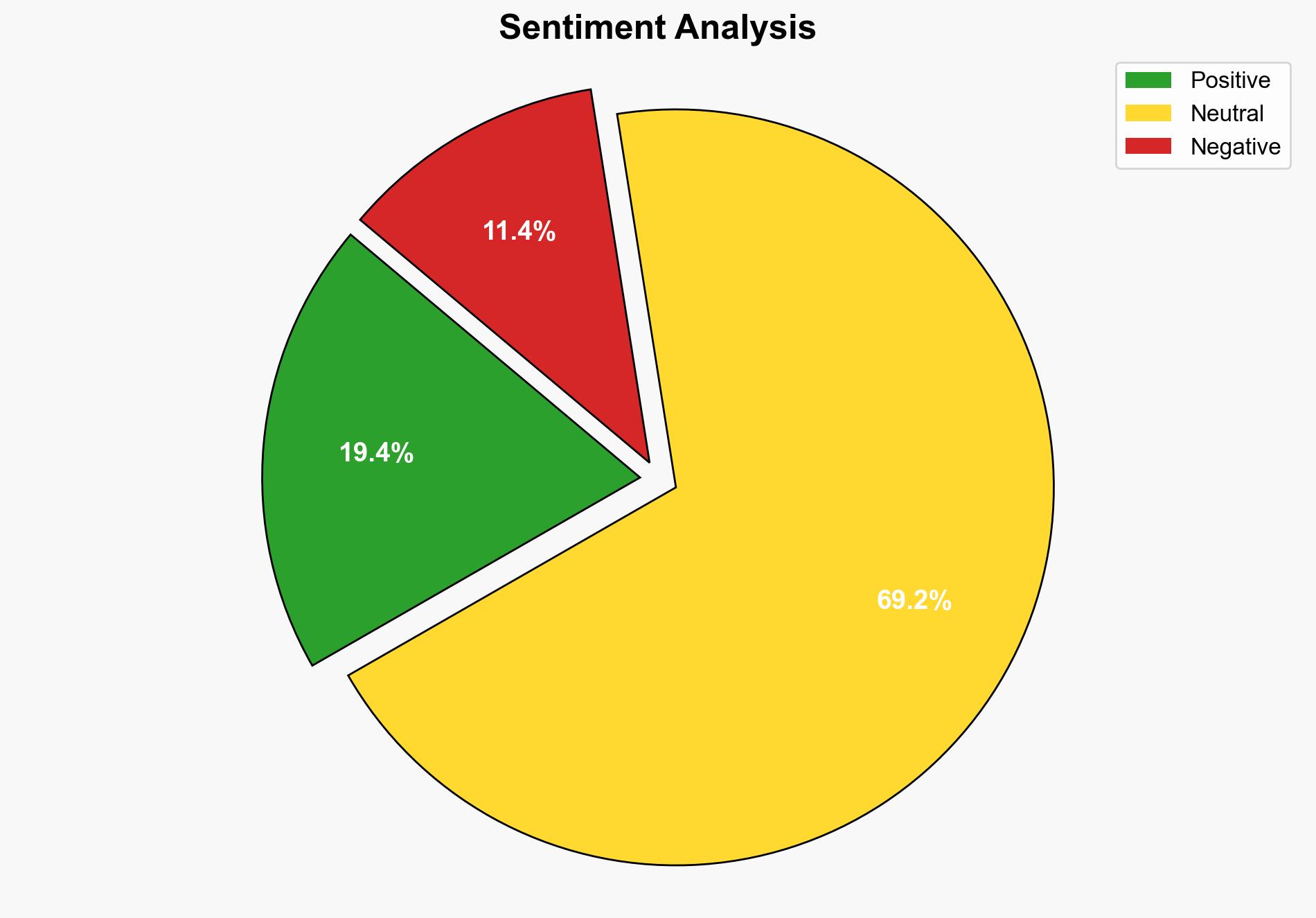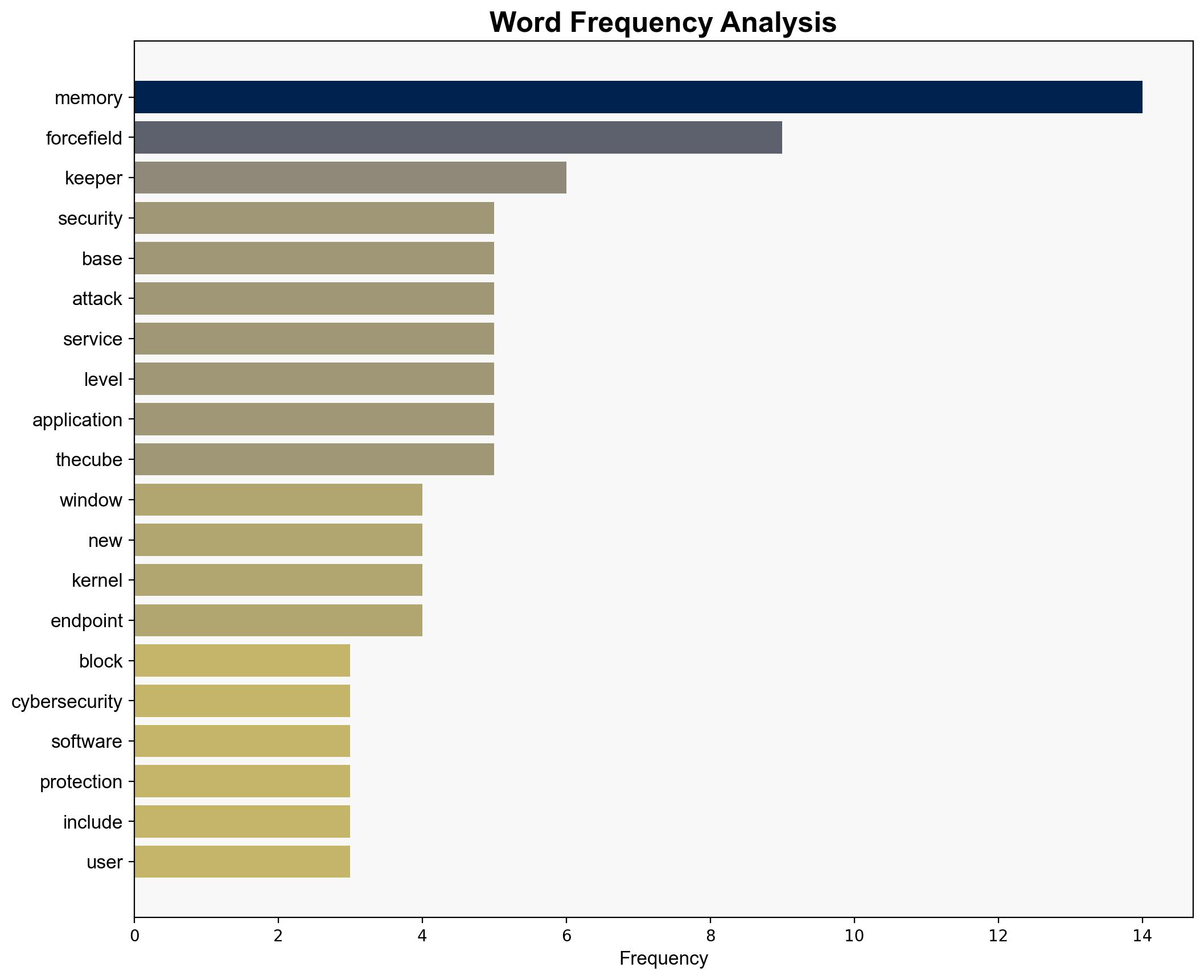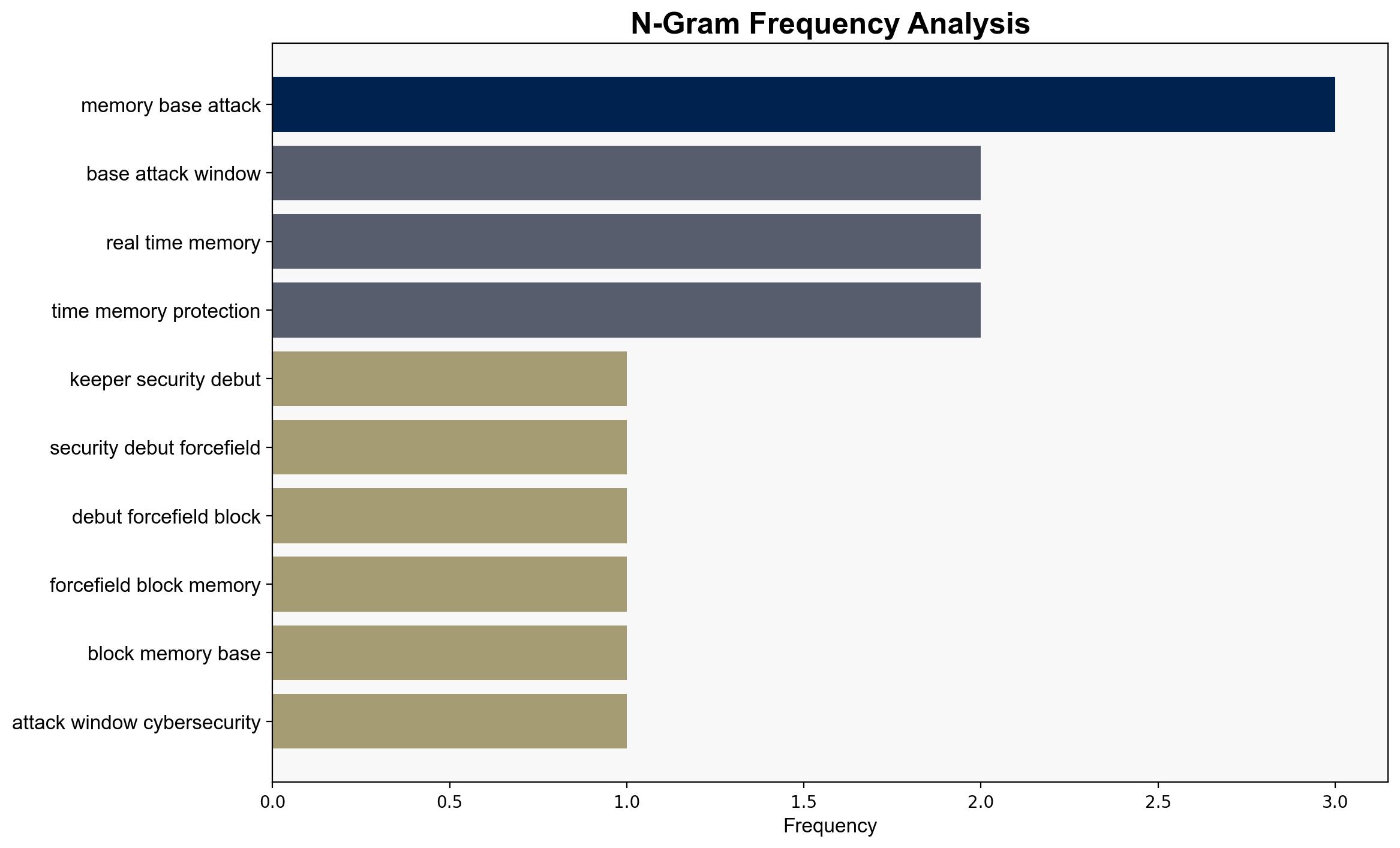Keeper Security debuts Forcefield to block memory-based attacks on Windows – SiliconANGLE News
Published on: 2025-11-06
Intelligence Report: Keeper Security debuts Forcefield to block memory-based attacks on Windows – SiliconANGLE News
1. BLUF (Bottom Line Up Front)
Keeper Security’s introduction of Forcefield represents a significant advancement in endpoint security, specifically targeting memory-based attacks on Windows systems. The most supported hypothesis is that Forcefield will enhance cybersecurity defenses by addressing vulnerabilities that traditional solutions overlook. Confidence level: Moderate. Recommended action: Monitor adoption rates and effectiveness of Forcefield in diverse environments to validate its efficacy.
2. Competing Hypotheses
Hypothesis 1: Forcefield will significantly improve cybersecurity defenses by effectively blocking memory-based attacks that bypass traditional security measures.
Hypothesis 2: Forcefield’s impact will be limited due to potential integration challenges and the evolving nature of cyber threats that may adapt to circumvent new defenses.
Using the Analysis of Competing Hypotheses (ACH) 2.0, Hypothesis 1 is better supported by the evidence provided, particularly the emphasis on kernel-level protection and real-time memory monitoring. However, the lack of empirical data on its performance in varied environments leaves room for uncertainty.
3. Key Assumptions and Red Flags
Key assumptions include the belief that kernel-level security is inherently superior and that Forcefield can seamlessly integrate with existing systems. A red flag is the absence of independent validation of Forcefield’s effectiveness. Potential cognitive bias includes optimism bias regarding the product’s capabilities without sufficient field testing data.
4. Implications and Strategic Risks
The introduction of Forcefield could set a new standard in endpoint security, prompting competitors to develop similar solutions, potentially leading to an arms race in cybersecurity technology. However, if Forcefield fails to deliver as promised, it could undermine trust in Keeper Security and similar innovations. The economic implications include increased costs for enterprises adopting new security measures and potential savings from reduced breach incidents.
5. Recommendations and Outlook
- Conduct independent testing of Forcefield in varied operational environments to validate its effectiveness.
- Monitor the cybersecurity landscape for emerging threats that may bypass or adapt to Forcefield’s defenses.
- Scenario-based projections:
- Best Case: Forcefield becomes a benchmark in cybersecurity, significantly reducing memory-based attacks.
- Worst Case: Forcefield fails to integrate effectively, leading to security gaps and increased vulnerability.
- Most Likely: Forcefield provides enhanced protection but requires continuous updates to address evolving threats.
6. Key Individuals and Entities
Craig Lurey, Keeper Security; John Furrier, SiliconANGLE; Dave Vellante, SiliconANGLE.
7. Thematic Tags
national security threats, cybersecurity, counter-terrorism, regional focus





